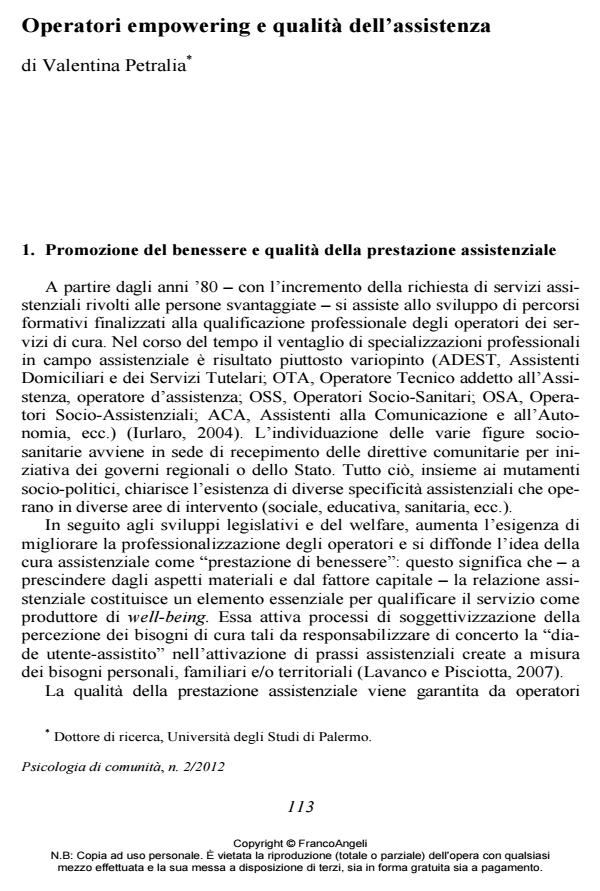Empowering caregivers and quality of assistance
Journal title PSICOLOGIA DI COMUNITA’
Author/s Valentina Petralia
Publishing Year 2013 Issue 2012/2
Language Italian Pages 6 P. 113-118 File size 330 KB
DOI 10.3280/PSC2012-002010
DOI is like a bar code for intellectual property: to have more infomation
click here
Below, you can see the article first page
If you want to buy this article in PDF format, you can do it, following the instructions to buy download credits

FrancoAngeli is member of Publishers International Linking Association, Inc (PILA), a not-for-profit association which run the CrossRef service enabling links to and from online scholarly content.
Caregivers offer some helpful activities to people in an integrated health system of services. The quality of the care is guaranteed by some empowering caregivers who are able to make a choice autonomously, to control their work, to develop a sense of self-esteem and self-determination. The aim of this contribution is to inquire the relationship between psychological empowerment, job satisfaction and work involvement of 190 caregivers. The development of empowerment and wellness of the caregivers is a fundamental aspect for a social policy which aims at building some fruitful and accessible networks of social healthcare services.
Keywords: Empowerment, job satisfaction, well-being, self-determination, caregivers.
Valentina Petralia, Operatori empowering e qualità dell’assistenza in "PSICOLOGIA DI COMUNITA’" 2/2012, pp 113-118, DOI: 10.3280/PSC2012-002010